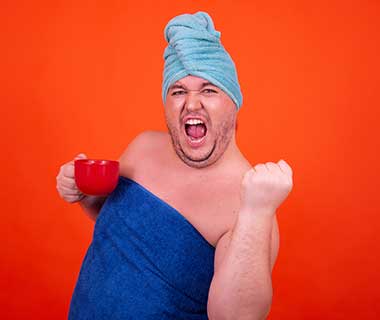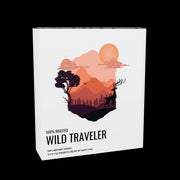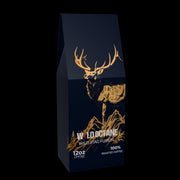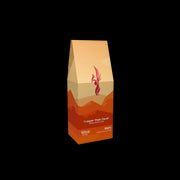According to research and data from the USDA, a typical 8-ounce (240ml) cup of decaf coffee contains approximately 2 to 5 milligrams of caffeine. For comparison, a regular cup of coffee can range from 95 to 200 milligrams of caffeine, depending on the brewing method, type of coffee bean, and serving size. So, even though decaf coffee isn't completely caffeine-free, it contains about 97% less caffeine than regular coffee.
However, the actual caffeine content in decaf coffee can vary depending on several factors:
-
Type of Coffee Beans: Different coffee beans naturally contain varying levels of caffeine. For example, robusta beans generally have more caffeine than arabica beans, so the caffeine in decaf made from robusta beans might be slightly higher.
-
Decaffeination Process: There are multiple methods for decaffeinating coffee, and each process can leave behind different amounts of caffeine. The Swiss Water Process, for example, uses only water and is known to remove 99.9% of caffeine, whereas other methods might leave a bit more behind.
-
Serving Size: If you drink a larger cup of decaf—say, 16 ounces instead of 8 ounces—you might be consuming double the amount of caffeine, though it would still be significantly lower than a regular coffee.
Does the Caffeine in Decaf Affect You?
Most people won’t notice the small amount of caffeine in decaf coffee. However, if you're particularly sensitive to caffeine or drinking multiple cups of decaf, you may still feel some of its effects, such as mild alertness or a slight increase in heart rate. For those who avoid caffeine for medical reasons (like pregnancy or heart conditions), it’s important to be aware that decaf coffee isn’t entirely free of caffeine.
Is Decaf Coffee a Good Option for Caffeine-Sensitive Individuals?
Yes, decaf coffee is an excellent option if you love the taste of coffee but want to limit your caffeine intake. Many people switch to decaf in the afternoon or evening to avoid disrupting their sleep while still enjoying the ritual of a warm cup of coffee. For people who are highly sensitive to caffeine, even a small amount could cause jitteriness, but for most, decaf provides a solution that delivers the taste without the buzz.
Decaf vs. Other Beverages: How Does It Stack Up?
To put things into perspective, here’s a comparison of the caffeine content in various drinks:
- Regular Coffee (8 oz): 95-200 mg of caffeine
- Decaf Coffee (8 oz): 2-5 mg of caffeine
- Black Tea (8 oz): 40-70 mg of caffeine
- Green Tea (8 oz): 20-45 mg of caffeine
- Cola (12 oz): 30-40 mg of caffeine
- Dark Chocolate (1 oz): 20 mg of caffeine
As you can see, even a cup of decaf coffee contains far less caffeine than tea, cola, or chocolate.
How to Make Sure Your Decaf Has the Least Caffeine
If you're trying to reduce your caffeine intake as much as possible, here are a few tips to minimize the caffeine in your decaf coffee:
- Choose Swiss Water Process Decaf: This method is the most effective at removing caffeine, often leaving behind only trace amounts.
- Check the Label: Some decaf brands list the exact caffeine content on the label, so you can compare products and choose one with lower caffeine levels.
- Limit Your Serving Size: While decaf coffee is low in caffeine, drinking multiple cups can add up.









